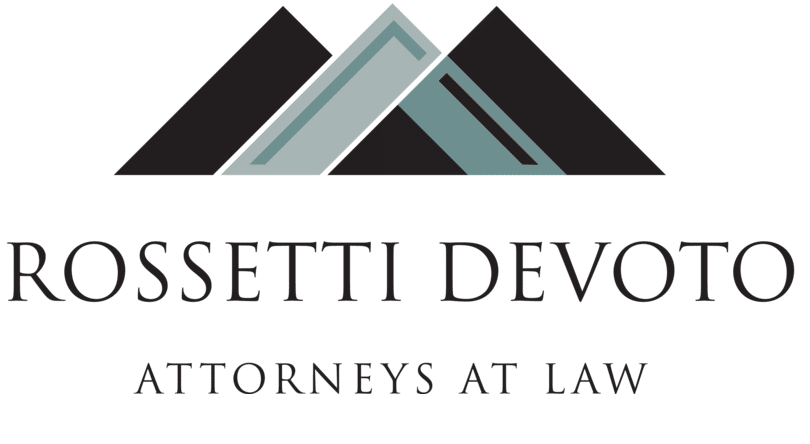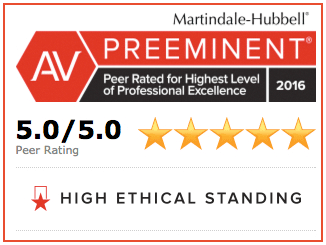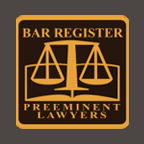General FAQ’s
1. How do I know if I have a case?
If you have been injured because some person or some company failed to do something they were supposed to do, you may have a potential personal injury case. When someone fails to do something they were either supposed to do by law or contract, they are said to have acted unreasonably or “negligent”. Negligence is simply the failure to act in accordance with what a reasonable person or company would do in the same or similar circumstance.
All negligence cases have the same basic framework in order for you to win your case. The following proofs are required:
- Duty– We must prove that the responsible party had a duty or obligation to act a certain way. The obligation to act a certain way can be determined based on the common law, (laws passed down over time from Old England) statutes and regulations, and contractual agreements. Most duties arise under common law. Generally speaking, the more foreseeable the harm may be to innocent persons, the greater the duty will be on a person or company to prevent that harm from occurring. Determining whether a duty exists for any situation is a legal determination decided by a judge and not a jury.
- Breach- Once it is determined that a duty existed, we have to prove that the defendant breached, or failed to comply, with that duty. Whether a defendant failed to comply with the duty to act a certain way is determined by the jury, unless it is so clear that a judge can determine that a breach occurred as a matter of law.
- Causation- Once it has been determined that the defendant had an obligation to act a certain way and failed to do so, we must connect the failure to act to the injury you sustained. If the injury would have occurred even if the defendant acted correctly, then causation would not have been proven. In its simplest form, we must prove that without defendant’s negligent conduct, you would not have been injured.
- Damages- In order to prevail and be awarded money damages, we must prove that you suffered harms and losses as a result. The harms and losses allowed can be:
-
- Pain and suffering (physical and emotional)
- Disability and impairment
- Loss of enjoyment of life
- Economic losses (lost wages and medical bills)
- Wrongful death
- Loss of a spouse’s comfort and consortium
- And others
Our lawyers provide a free initial consultation and in many cases, can determine whether you have a case during our initial phone call with you. Other cases, like medical malpractice and unsafe products, require a detailed investigation because many important facts will not be known during the initial call. Regardless of the type of case, the personal injury lawyers at Rossetti & DeVoto, PC are extremely responsive and move swiftly to undertake all necessary investigations to get you immediate answers.
2. I have never had a lawsuit before, but heard that when a person files a lawsuit they are actually suing the insurance company. Is that correct?
Yes and no. Technically, all lawsuits are filed against the actual wrongdoers. But the lawyers that defend the wrongdoers and the settlements or judgments that are eventually paid, are all paid for by their insurance companies. For example, if you were seriously injured in a car crash while riding as a passenger in your neighbor’s car, and you filed a lawsuit, the lawsuit would be filed against your neighbor but her insurance company would pay for her lawyer and would pay any settlement or judgment.
3. How does a personal injury case work?
After speaking to you by phone, we will set up an immediate free consultation in person where will gather more details about what happened and explain our strategy for moving forward if we believe you have a meritorious case. In general, the following steps are taken:
INVESTIGATION – An investigation will be conducted to confirm what happened. We will obtain investigative reports, interview witnesses, take photographs and gather other key evidence to help prove your case.
OBTAINING MEDICAL INFORMATION – We will contact all of your medical treatment providers to let them know we are representing you. We will obtain all of your medical records at the conclusion of your treatment and obtain narrative reports from your doctors regarding the treatment, diagnosis, and cause of your injuries.
MEDICAL BILLS – You may have certain rights and benefits under your car insurance policy and/or health insurance policy for the payment of medical treatment. Recent changes to the law have made this determination more complicated than ever. We will analyze your policy or policies and advise you regarding the payment of your medical bills and prescriptions.
RETAINING EXPERTS- We will retain top experts to provide opinions and conclusions regarding your case if such expertise is required. Experts are typically retained in cases when everyday citizens would not know what went wrong without the expert’s analysis. Experts are typically retained for accident reconstruction in complex crash cases, slip and fall cases, all trucking crashes, construction injury cases, unsafe product cases, medical malpractice, nursing home and birth injury cases, amusement park injury cases, negligent security cases. The experts may be engineers, doctors, nurses, hospital administrators, architects, safety experts, contractors, and the like.
SETTLEMENT – We will contact the defendant’s insurance company and demand that they pay for your harms and losses. If they fail to pay our demands or fail to negotiate in good faith, we will advise you of this and recommend filing a lawsuit on your behalf so that a jury can determine what damages you should receive. No settlement or decision to file a lawsuit will be made without your approval.
FILING SUIT – If an acceptable settlement cannot be reached that fully compensates you for your injuries, we will file a lawsuit on your behalf and pursue it until a resolution of your claim is reached. Filing a lawsuit does not mean that your case may not settle at a later date. In most cases, the lawsuit is resolved before having to go to trial.
NEGOTIATING LIENS – If you are a Medicare or Medicaid recipient or if you were paid workers’ compensation as part of your injuries, you will likely have a lien against your settlement for these payments. We will do everything possible to make sure we negotiate these lien repayments so that you pay back as little as possible.
- Handling every necessary process to resolve your case
- Provide guidance and advice through the complex civil tort legal system
- Serve as your legal advocate in court and during negotiations
- Answer every question you have concerning the process
- Ensure that you meet every necessary filing requirement and strict deadline
- Gather all necessary evidence including witness statements to help prove your case
- Work hard to ensure the financial compensation you deserve is secured
4. How do I choose the best lawyer for my case?
The best lawyer for your case is the one that you believe will do the best job for you. Everyone is different and there is no one right lawyer for every case or for every client. Obviously, you want to make sure that the lawyer you select has the proper experience for your type of case, has excellent credentials and a track record of success with jury verdicts and settlements. Read more about why verdicts are important in “what’s my case worth?”. You also have to be comfortable and confident with the lawyer you select. If you feel good about a lawyer, perhaps they explain things very well, listen well and don’t rush you, then that is a very good sign that you have found the perfect lawyer for you.
5. Do I pay any up-front costs or fees?
There are no up-front fees or costs and your initial consultation is free with no obligation. Rossetti & DeVoto works on a contingency fee. That means we don’t get paid until and unless you win. That does two things for you. First, it gives you access to our civil justice system to all citizens regardless of who they are and where they come from. Second, it allows us to join together and have the same incentives; to do everything possible to get you the best possible recovery. When we win, we win together.
6. What is my case worth?
There are only two certainties about what your case is worth—-what a defendant or his insurance company will pay you not to go forward with a jury trial or what a jury awards you after a trial. Short of those two certainties, the answer is that it depends upon the facts of each case. And the facts matter. When you retain us as your lawyers, we do everything possible to maximize your case based on your harms and losses. We don’t value your case based on what some other lawyer might have gotten in some other county. If we did, we would be selling you short. The simple truth is that there are far too many variables at the beginning of a case to predict what your case is worth. Perhaps an example will help. Once a case begins, we obtain documents, take depositions, and hire experts. Now imagine that you have the same exact injuries as someone else but that the documents we obtained showed that the defendants lied about the incident, that you made an excellent witness at deposition, and that we were able to hire the best experts. Don’t you think your case should be worth more than someone else who had the identical injuries but wasn’t a compelling witness at deposition and had lousy experts? We do. Our personal injury lawyers have one goal—to fight to get YOU the best possible result based on YOUR case. In our court system, injuries do not come with prices. Juries award what they believe is fair and reasonable. The better we can show how your injuries have affected you—the more money we can demand in settlement. And remember—nobody will pay you a settlement unless they perceive that there is risk in them having a jury decide your case. That’s why having a track record of success in jury trials matters.
7. How long does a personal injury case take?
How long a personal injury case takes depends on several factors. Some cases can be settled quickly, either because our demands are met or because there is minimal insurance coverage and the defendants may just pay the insurance policy rather than incur additional litigation costs. Most cases require a lawsuit and take time to develop, especially if they involve serious injuries or complex liability like medical malpractice or unsafe product litigation. There are two timelines to think about. The first is how long you have to file a lawsuit, which is two years for most cases. Depending on when the lawsuit is filed, the entire process from the date of injury through a jury trial will typically take anywhere from 2-4 years. If you file the lawsuit quickly, then you are closer to the 2-year mark. If you wait the full 2 years and then file suit, you are closer to the 4-year mark. However, a case may be settled at any time along that timeline and most cases do not require a jury trial.
8. Do most cases settle out of court?
Most cases are settled out of court. However, we prepare every case as if it were going to trial because the better case we can present, the more likely the defendant will pay our settlement demands. In that regard, it is extremely important to have a track record of success in winning jury trials. Insurance companies know the difference between lawyers who can take a case to trial and win and those who cannot and the settlement offers they make reflect that difference.
9. What happens if my case goes to trial?
First and foremost—relax and don’t worry. We are with you every step of the way and it is actually a much easier process than you might think. Trials can vary in length depending on the case. We typically have advanced notice of a trial two months before it takes place. The trials take place in the courthouse of the county where the lawsuit was filed. We will not take any case to trial unless our client wants a jury trial. While we want to do everything to maximize your recovery and get you the best possible result, if you would prefer a settlement and do not wish to go through a trial, then we will settle your case for the most we can possibly obtain.









